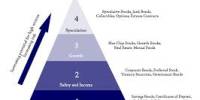A bear raid is an unlawful activity of conspiring to drive the price of a stock lower by coordinated short selling while disseminating unfavorable rumors about the business being shorted. It’s a stock market technique in which a trader (or a group of traders) tries to drive the price of a stock lower in order to cover a short position. Unscrupulous short-sellers who seek to make a fast buck from their short positions use social media platforms and internet discussion boards to conduct bear raids.
A technique utilized on the securities exchange, where merchants attempt to coercively bring down the cost of stock to cover the cost of a short position. This is typically accomplished by spreading negative bits of hearsay about the objective organization, which squeezes the offer cost. A bear-raid target is typically a firm that is experiencing difficulties since its weak position makes it ideal fodder for short-sellers. The term “bear” or “bearish” is derived from the widespread usage of the words “bear” or “bearish” in market sentiment language to indicate that investors predict negative price movement.
While short selling is lawful, the Securities and Exchange Commission (SEC) considers coordinated short selling to be market manipulation, and disseminating false rumors is considered fraudulent behavior. When joined with a mission of planted negative stories (like gossipy tidbits about monetary troubles), the expectation is to trigger a significant auction that drives down the cost of an organization’s offers, permitting the first gathering of short dealers to harvest critical benefits. A bear raid’s goal is to drive down the price fast in order to benefit from a short position by selling first and then purchasing again at a cheaper price.

A bear raid’s goal is usually to generate windfall profits in a short period of time through short sales. If the bear raid succeeds and the target stock falls, short-sellers can repurchase the shares on the open market for a low price. A bear raid’s goal is usually to generate windfall profits in a short period of time through short sales. If the bear raid succeeds and the target stock falls, short-sellers can repurchase the shares on the open market for a low price.
Bear attacks are most often directed against firms that have been reporting poor performance, in the hopes that the investing community would accept the false reports. The short merchants bring in cash by selling the offers first, at what they accept is an exorbitant cost, and afterward repurchasing them to finish off their situation at a lower cost. The short venders benefit from the distinction. The short vender benefits just assuming the stock value falls selling high and, purchasing low.
Spreading bad rumors about the target company can be used to carry out a bear raid, putting downward pressure on the stock price. Short sellers may plan ahead of time to create significant short holdings in the target stock in a typical bear raid. Because the stock’s short interest raises the danger of a short squeeze, which may result in significant losses for short-sellers, short sellers cannot afford to wait months for their short strategy to pay off.
The association between a company’s offer cost and its actual worth isn’t just about as close as many individuals accept. Organizations offer stock to the general population to fund-raise. The mark of a bear attack is to make bonus benefits inside an unimaginably tight edge of time through short sells. Short sellers can buy the shares inexpensively on the open market if the raid is successful and the stock under mark plummets. This is usually seen as a type of securities fraud. Alternatively, traders might take huge short positions themselves, influencing the market with a high volume of selling and so making the approach self-sustaining.
Once in circulation, the price of the shares tends to rise and fall in lockstep with the firm’s earnings, but other factors such as the overall market or industry trend, the firm’s performance in comparison to its industry peers, and speculation about how the firm’s business strategy, products, and competitiveness will affect future earnings also play a role. The following stage in the bear assault is much the same as a slanderous attack, with murmurs and bits of gossip about the organization spread by obscure sources. These tales can be whatever depicts the objective organization in a negative light, like claims of bookkeeping extortion, an SEC examination, a profit miss, monetary hardships, etc.
Fearful investors may flee the company in droves as a result of the rumors, pushing the price further lower and providing short sellers the reward they want. Disseminating false rumors is also considered a fraudulent action. As a result, bear raids are illegal, yet they nevertheless happen when short sellers try to keep their actions hidden from regulators. While bear raids might include intrigue and bogus bits of hearsay, which is unlawful, there are likewise legitimate bear assaults that can happen when individuals begin shorting a lot of stock, independently, because of worries with an organization’s course.
Because the link between a firm’s business success and stock price may be so shaky, it’s long been assumed that the stock’s fate has little bearing on a firm’s true economic value, which is measured by assets and earnings. A stock may experience downward pressure owing to selling and rising unfavorable news as long as the information is not purposely misleading and the sellers are not collaborating with one another. This natural market activity is sometimes referred to as a bear raid by many individuals.
As a result, distinguishing between baseless rumors and facts is critical. As a result, a bear raid would have no long-term consequences. Notwithstanding, if the falling offer cost brought about by a bear raid harms the firm, different financial backers are probably going to dump the stock too, causing an endless loop of falling offer costs and monetary harm that would make the bear assault more productive. The main distinction between an illegal bear raid and short-sellers expressing worry about a business is if the short-sellers have collaborated and are distributing misleading information.
Information Sources:
















